Sustainable Denim: Eco-Friendly Practices in the Industry
Moische.com
As awareness of environmental issues grows, the fashion industry, particularly denim production, is increasingly embracing sustainable practices. This article delves into the various eco-friendly methods that are transforming denim into a more sustainable and responsible choice for consumers.
Organic Cotton
Organic cotton is a cornerstone of sustainable denim. Unlike conventional cotton, organic cotton is grown without synthetic pesticides or fertilizers, reducing the environmental impact. It also uses less water and promotes healthier soil through crop rotation and composting.
Water Conservation
Traditional denim production is water-intensive, but many brands are now adopting water-saving techniques. Methods like laser treatments, ozone washing, and water recycling significantly reduce the amount of water used in the dyeing and finishing processes. For instance, some companies have developed technologies that cut water usage by up to 90%.
Eco-Friendly Dyes
The dyeing process for denim typically involves harmful chemicals. However, sustainable denim brands are switching to eco-friendly dyes and processes. Natural indigo, biodegradable dyes, and plant-based dyes are becoming more common, reducing the release of toxic substances into the environment.
Recycling and Upcycling
Recycling and upcycling are vital components of sustainable denim. Many brands are now creating jeans from recycled fibers, which can include post-consumer waste like old jeans or pre-consumer waste such as factory scraps. Upcycling involves repurposing old denim into new garments, giving a second life to materials that would otherwise be discarded.
Sustainable Production Techniques
Innovative production techniques play a significant role in reducing the environmental footprint of denim. These include:
Laser Technology: Used for creating distressed looks and patterns without the need for water or chemicals.
Ozone Fading: Utilizes ozone gas to achieve faded effects, reducing water and chemical usage.
3D Printing: Allows for precise application of finishes and patterns, minimizing waste.
Ethical Labor Practices
Sustainability in denim extends beyond environmental concerns to include ethical labor practices. Brands committed to sustainability ensure fair wages, safe working conditions, and respect for workers' rights throughout their supply chains. Certifications like Fair Trade and B Corp are indicators of a brand's commitment to ethical labor standards.
Biodegradable Denim
Biodegradable denim is an emerging trend in the industry. These jeans are designed to break down naturally after disposal, reducing landfill waste. Brands are experimenting with biodegradable fibers and natural dyes to create jeans that have a minimal environmental impact at the end of their life cycle.
Sustainable Packaging
Sustainable denim brands are also rethinking packaging to reduce waste. This includes using recycled and recyclable materials, biodegradable packaging, and minimalistic designs to cut down on excess material use. Some brands even offer reusable packaging solutions.
Consumer Education
Educating consumers about sustainable practices is crucial for the industry's shift towards eco-friendliness. Brands are increasingly transparent about their production methods and sustainability goals, encouraging consumers to make informed choices. Initiatives like take-back programs and repair services also promote a longer lifespan for denim products.
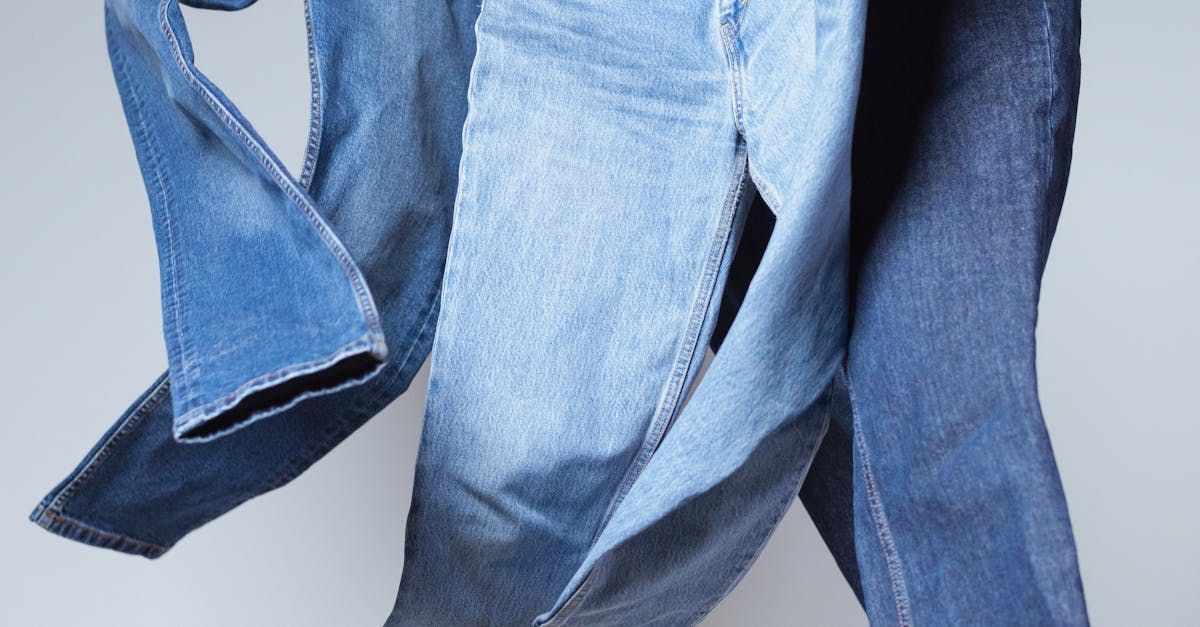
Stay ahead in denim fashion with insights into the latest innovations and trends. From sustainable practices and eco-friendly materials to smart fabrics and customization options, explore how technology and creativity are shaping the future of denim. Learn about new denim styles and production techniques that promise to revolutionize your wardrobe.

Discover the world of denim accessories that go beyond jeans and jackets. From stylish bags and hats to chic shoes and belts, explore how denim is used to create unique and fashionable accessories. Learn how to incorporate these pieces into your wardrobe for a fresh and trendy look that showcases the versatility of this timeless fabric.

Unleash your creativity by customizing your jeans with these DIY tips and tricks. Learn how to add unique details like distressing, embroidery, patches, and more to create one-of-a-kind denim pieces. Whether you want a subtle change or a bold transformation, our guide will help you personalize your jeans to reflect your style and personality.
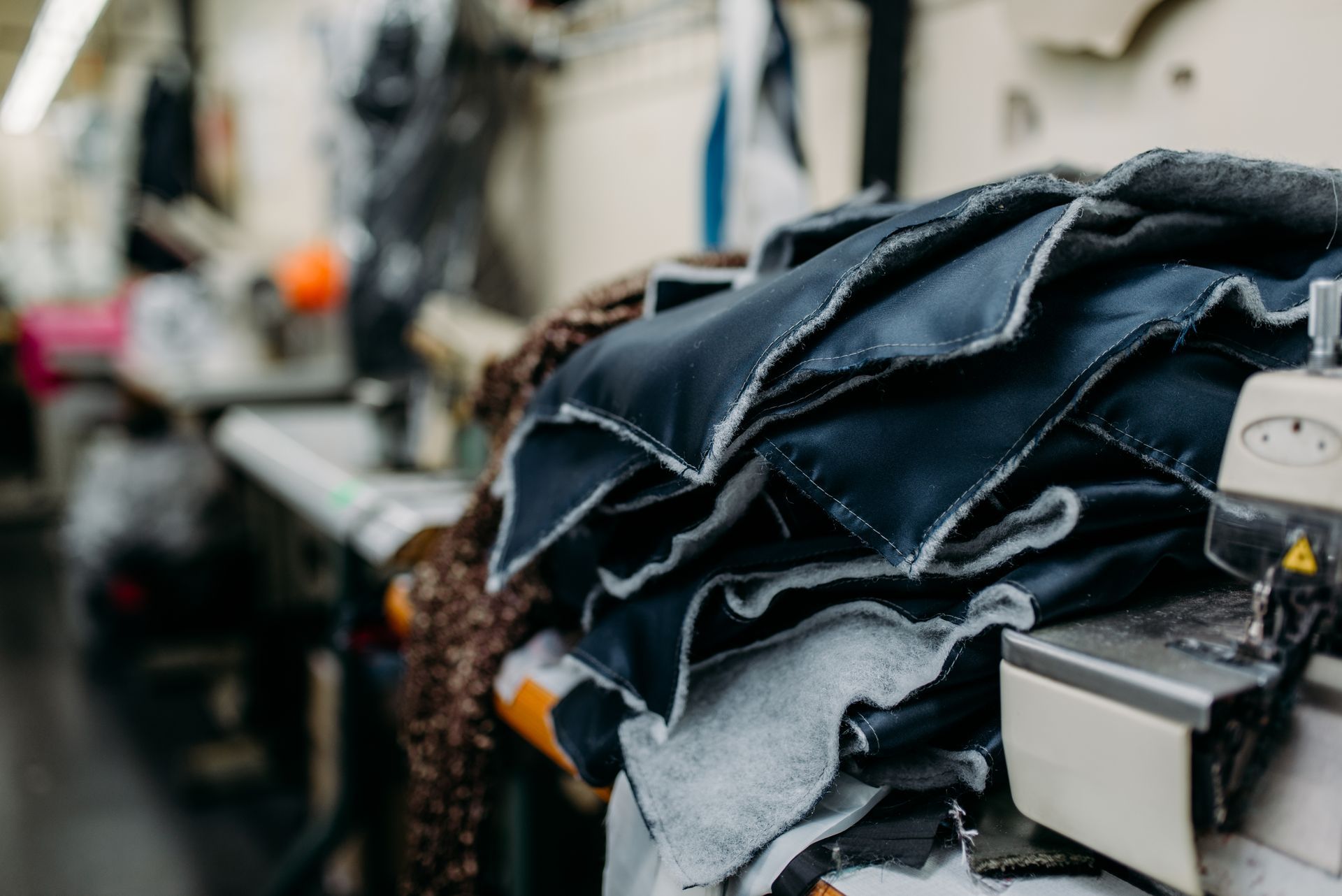
Explore the detailed process of denim production, from cotton harvesting and yarn dyeing to weaving, cutting, and sewing. Learn about the various steps involved in creating your favorite pair of jeans, including fabric finishing techniques and quality control measures. Understand the craftsmanship and technology that go into making durable and stylish denim garments.

Discover how denim has shaped and been shaped by pop culture. From James Dean's rebellious style to Madonna's fashion statements, learn about the iconic moments and figures that made denim a cultural staple. Explore how music, movies, and celebrities have influenced denim trends, turning this fabric into a symbol of individuality and timeless style.
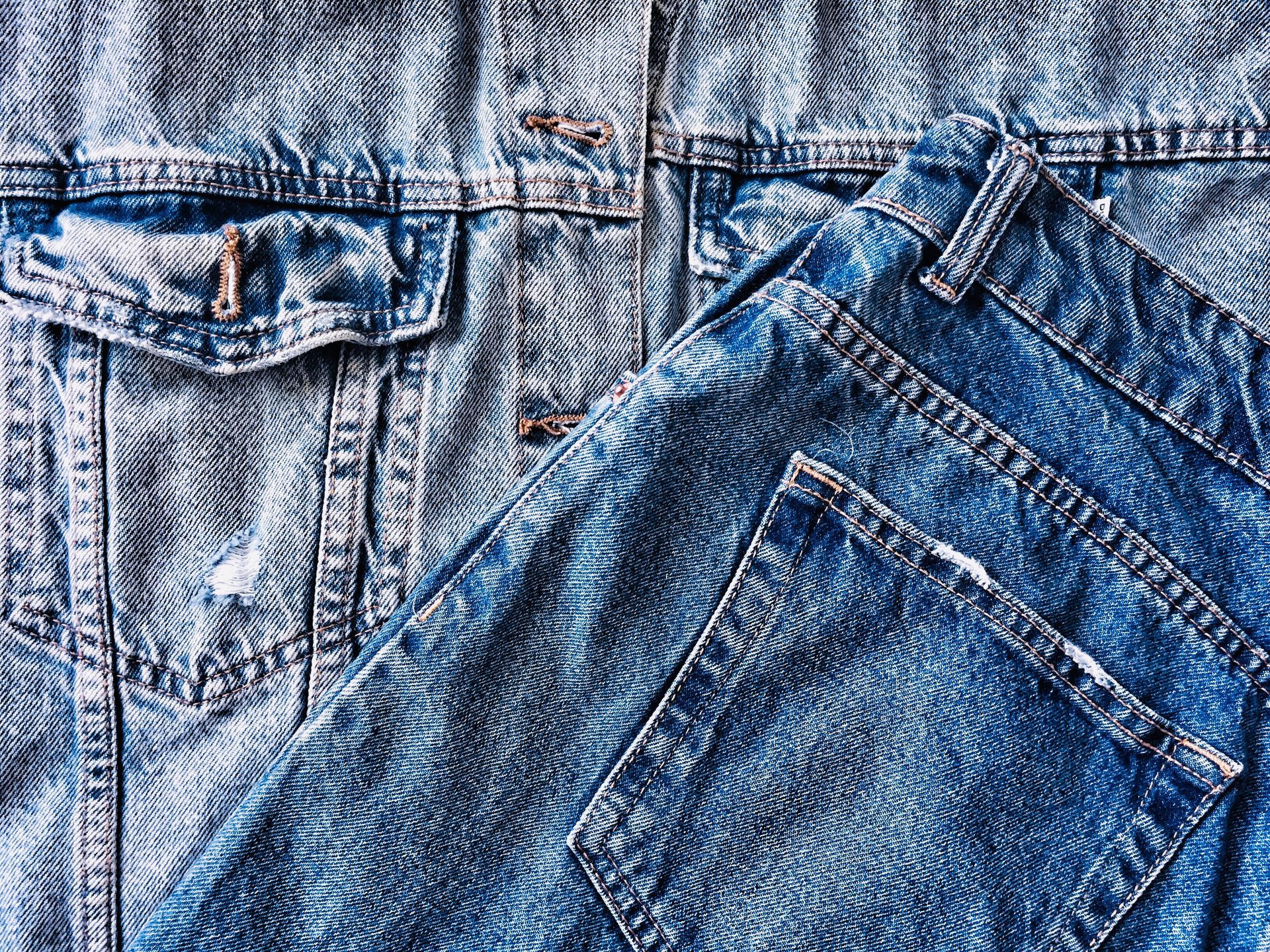
Embrace the return of vintage denim with our guide on how to find and style retro jeans. Learn where to shop for authentic vintage pieces and discover tips on styling them to fit modern trends. From high-waisted cuts to flared legs, explore how to incorporate timeless denim styles into your wardrobe for a unique and fashionable look.
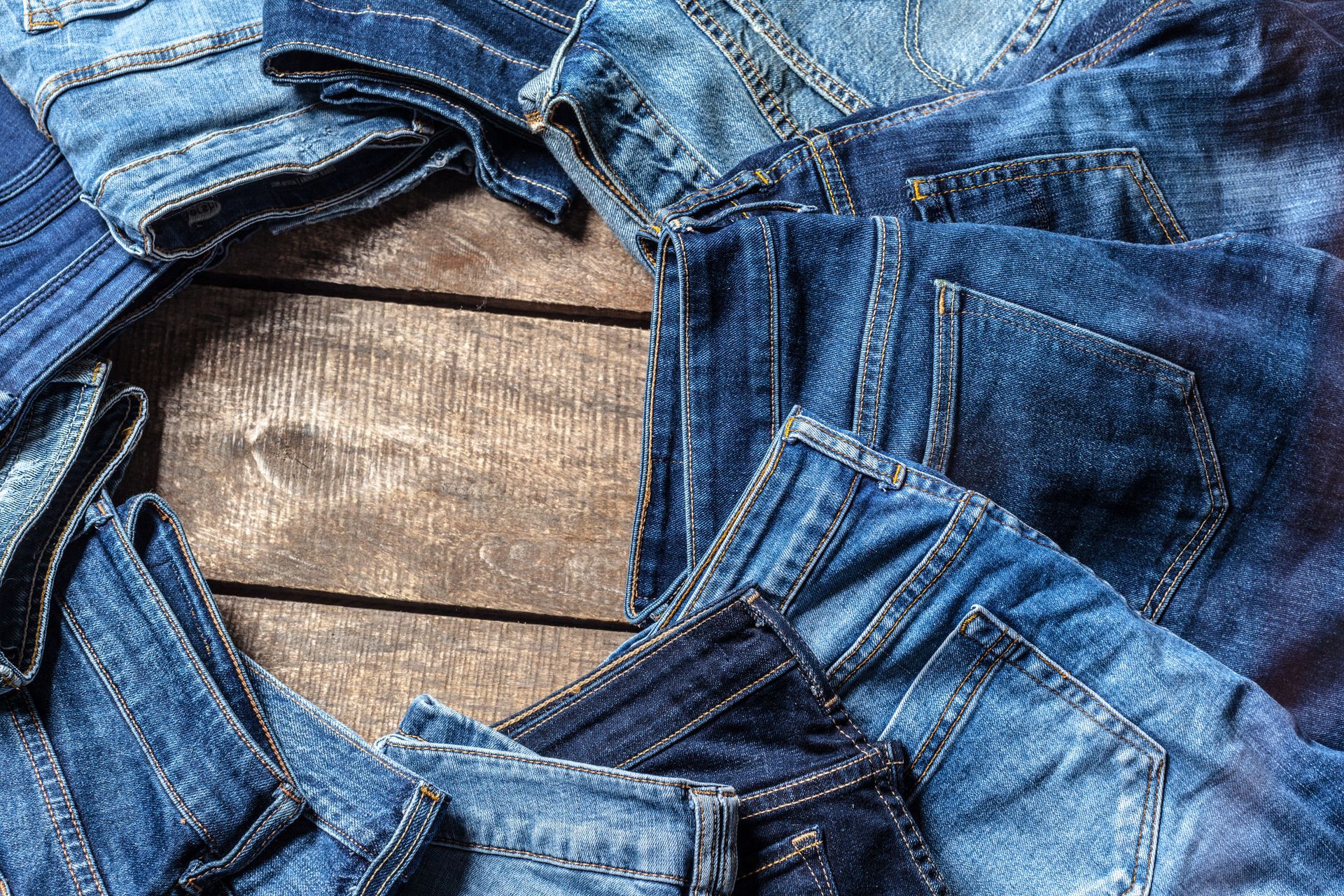
Understand the different denim fits to find your perfect pair of jeans. From slim and straight to skinny and beyond, learn the key characteristics of each fit, including how they taper and where they sit on the waist. Discover styling tips for each type to ensure you look and feel great in your denim, no matter the occasion.
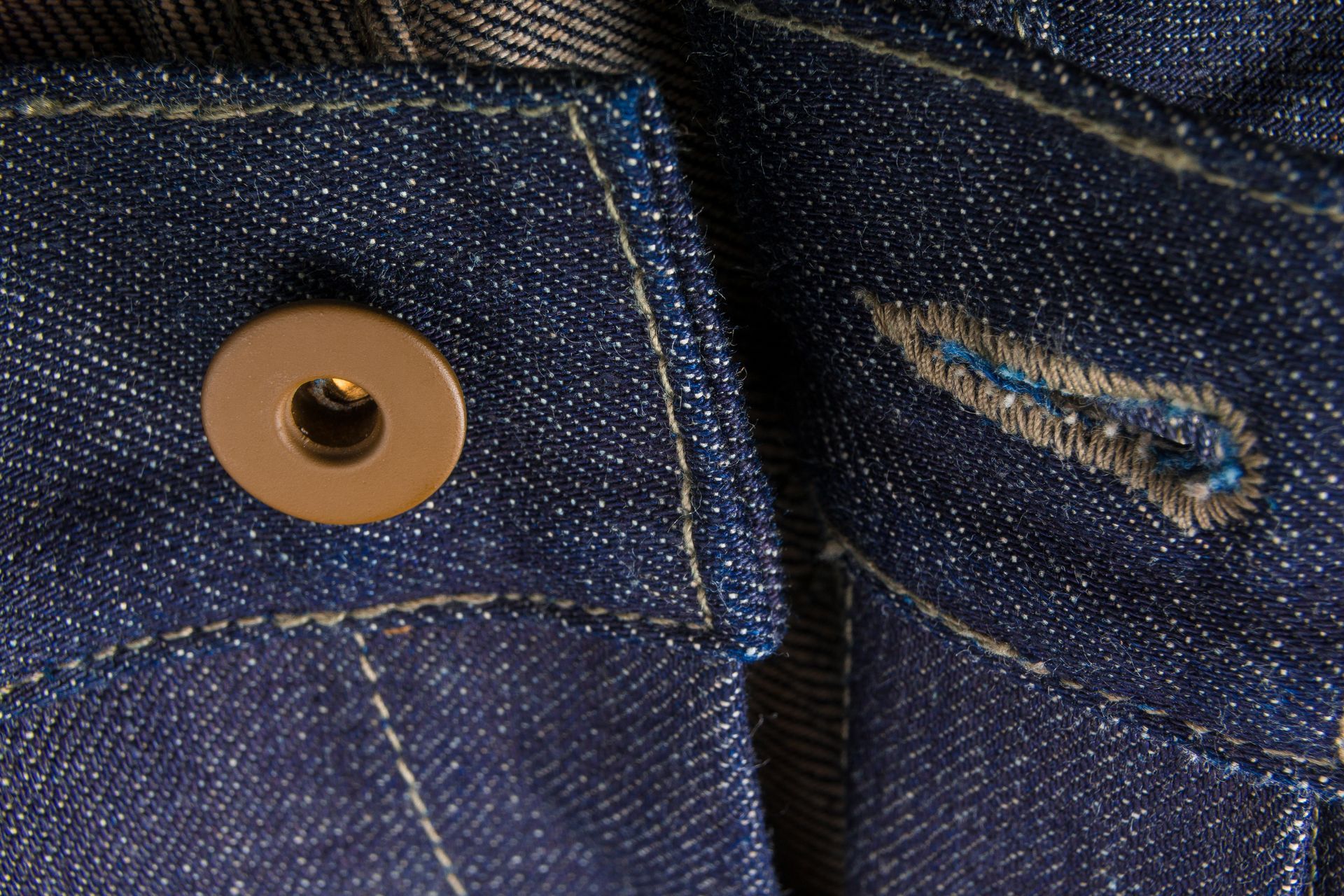
Dive into the world of denim fabrics and learn about the differences between raw and selvage denim. Discover the unique qualities of each type, including their durability, aging process, and distinctive features. Understand how these fabrics are made and what sets them apart, helping you make informed choices when selecting your next pair of jeans.
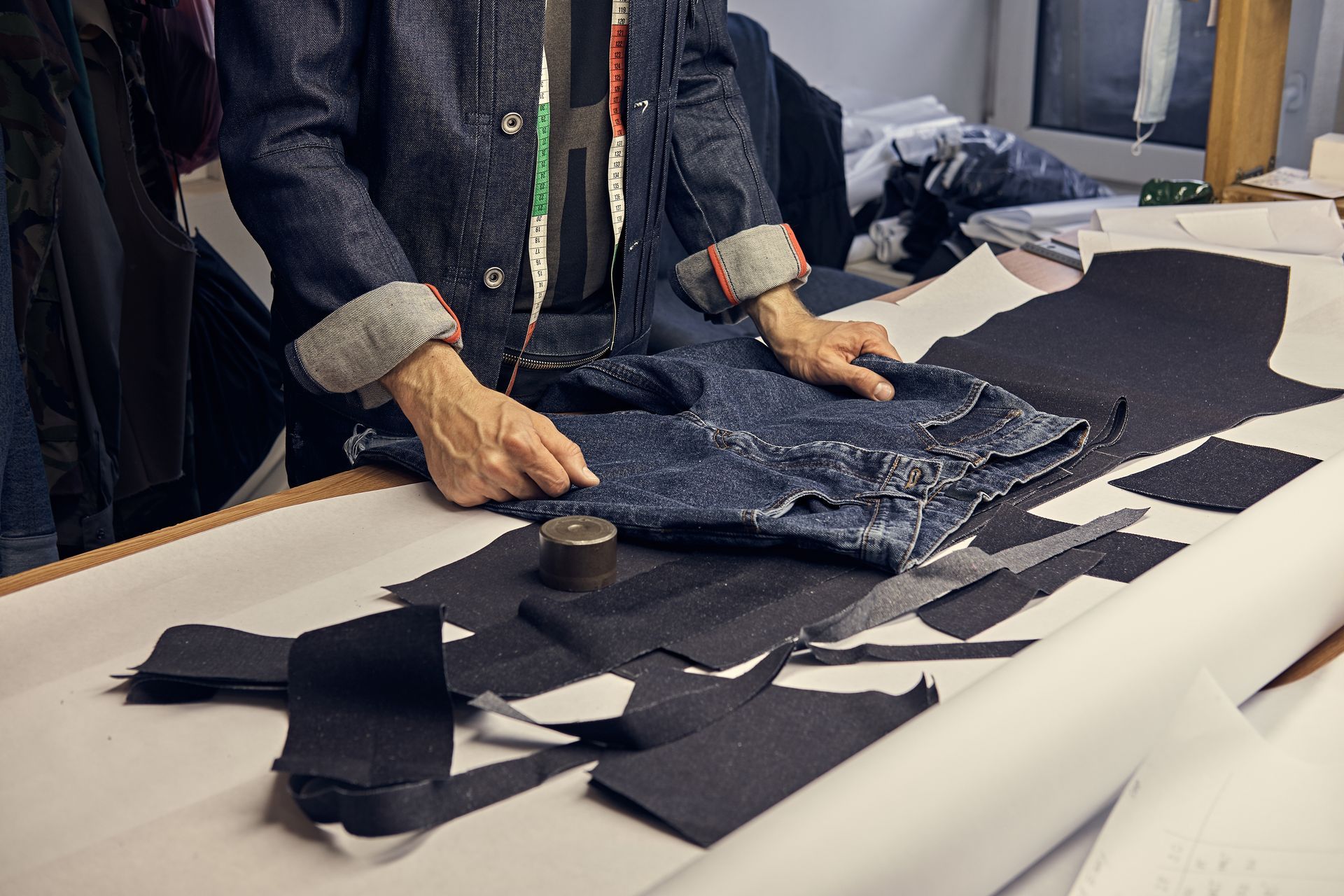
Dive into the world of denim fabrics and learn about the differences between raw and selvage denim. Discover the unique qualities of each type, including their durability, aging process, and distinctive features. Understand how these fabrics are made and what sets them apart, helping you make informed choices when selecting your next pair of jeans.
